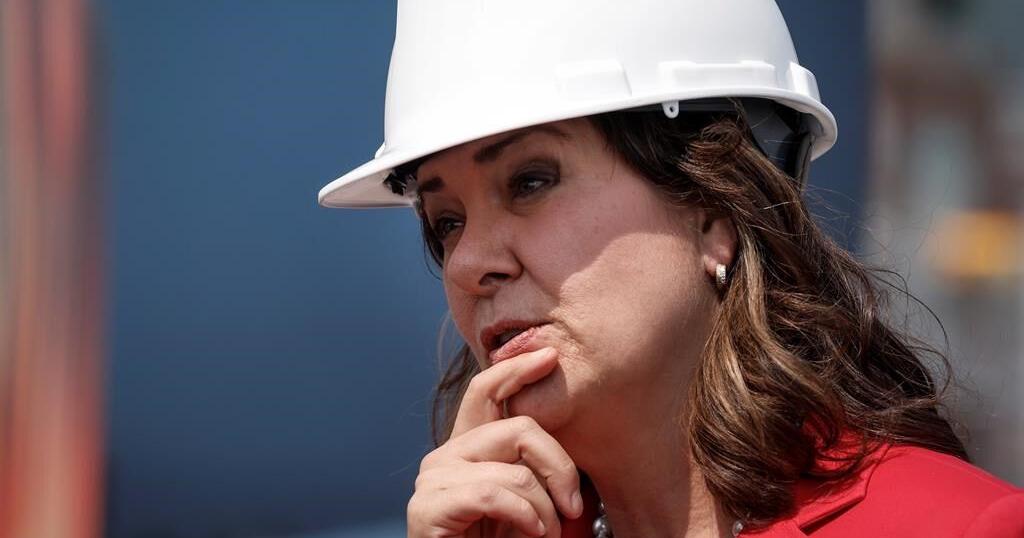EDMONTON – Alberta Premier Danielle Smith says her plan to “Uber-ize” and replace the province’s online continuing care directory is aimed at making it easier for patients to navigate spaces, and the analogy shouldn’t be taken too far.
It comes a day after Smith announced at a continuing care conference she aims to create a new platform that works much like the app to order rides or meals.
“What we’re talking about is creating a portal so that those (providers) who have spaces available can easily post them, and those who need a space can easily find them,” said Smith at the official opening of a new cancer centre in Calgary on Thursday.
It’s part of the United Conservative government’s health-care system overhaul that will see the responsibility for continuing care shifted from the Health Ministry to Seniors, Community and Social Services Minister Jason Nixon.
Smith’s mention of the Uber model sparked renewed concerns from public health-care advocates, unionized health workers and the Opposition NDP that further privatization plans are afoot.
When asked if the shift might mean changes to how some in the sector are contracted, Smith said “there’s no contemplation of changing the provision model.”
Alberta Health Services currently offers an online directory that allows Albertans to search for spaces by name, location and type of care, but Smith said there’s a demand for more transparency to make sure all vacant spaces are posted.
“We’ve heard from our various non-profit and private providers that some facilities have as many as 35 per cent of spaces open,” she said.
At the same time, she said the province is at least 3,500 spaces short of being able to keep up with demand from those who are in hospital or living in communities waiting for placement in an appropriate facility.
The province has a mix of non-profit, for-profit and publicly run continuing care operators.
Nixon noted in a statement Thursday the continuing care system is a mix of private, not-for-profit and government-run facilities.
“The transfer of continuing care is not privatization and there is no intention to privatize,” he said.
He added that private service providers and organizations are crucial to maintaining the system, and government will continue to work with them.
Public Interest Alberta and Friends of Medicare said in a joint statement Wednesday the premier’s announcement signalled a move towards more for-profit care.
NDP seniors critic Lori Sigurdson said the administrative changes do not build a single new continuing care bed or offer more service for those who are stuck without options between hospital and home.
“The UCP’s solution of ‘Uber-izing’ services with a full spectrum of available providers sounds like fancy language for the privatization of health care,” she said in a release.
Thursday, the Alberta Union of Provincial Employees, which represents some 62,000 members in health care, said Smith is opening the door to health-care profiteering.
“This government continues to pretend it is running a Fortune 500 company instead of a province,” said vice-president Curtis Jackson in a news release.
“What Albertans need are more beds, higher staff to resident ratios, and more front-line home health-care providers backed by a fully funded and publicly delivered health-care system without the undertone of generating profits,” he said.
On Tuesday, Health Minister Adriana LaGrange announced that Primary Care Alberta is the new organization responsible for overseeing care from family doctors and nurse practitioners.
Another new agency called Recovery Alberta officially took over the mental health and addiction portfolio earlier this year.
This report by The Canadian Press was first published Oct. 17, 2024.
